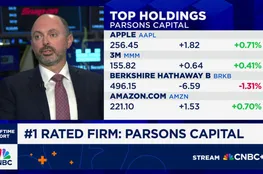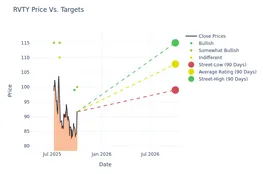Goldman Sachs has identified several stocks poised to gain from specific provisions within President Donald Trump’s tax bill, a plan that aims to extend tax cuts initially implemented during his first term. The House of Representatives recently passed the legislation, which includes temporary tax relief on tips and a $25 billion investment in the "Golden Dome" missile defense system. However, the bill’s impact extends beyond these immediate measures. Economists predict the bill will contribute significantly to the growing national debt, potentially leading to increased U.S. Treasury yields. Despite this, the bill’s path to Senate approval remains uncertain, with some Republicans advocating for substantial cuts to Medicaid as part of a broader agreement. The legislation already incorporates significant reductions to the Supplemental Nutrition Assistance Program (SNAP), representing the largest-ever cut to food stamps.
Nevertheless, certain provisions within the bill could offer substantial benefits to small-cap stocks, according to Goldman Sachs analysts, spearheaded by Deep Mehta. Their analysis, informed by Goldman political economist Alec Phillips, highlights potential tailwinds such as the "full expen sing of domestic factories," a reinstatement or extension of 2017 tax law provisions allowing companies to fully deduct capital spending on equipment, and more favorable interest expense deductibility. Goldman’s assessment suggests that small-cap companies with high capital spending are particularly well-positioned to capitalize on these changes. Mehta emphasized this point in a Wednesday note, stating that small-caps are often more sensitive to tax policies due to their higher domestic exposure, leverage levels, and tax rates. This sensitivity creates a direct correlation between the tax bill’s provisions and the performance of these companies.
The analysis specifically focuses on stocks that closely align with the proposed Congressional legislation. One example is Kodiak Gas Services, a natural gas compression company, which experienced a 16% decline in its stock price through Thursday, December 29, 2025. Despite this drop, nearly 90% of analysts polled by FactSet rate the stock a buy, with a consensus price target indicating a 30% upside potential. Goldman analyst John Mackay noted a strong demand outlook for compression services in U.S. shale oil fields, particularly within the Permian production region, which is proving more resilient than initially anticipated. Mackay’s forecast predicts stable capital spending for Kodiak, coupled with improved profit margins, ultimately supporting both free cash flow and the company’s flexibility to repurchase stock. This strategic approach aligns with Goldman’s broader recommendation of prioritizing small-cap stocks with high capital expenditure.
Furthermore, Shake Shack, the popular burger chain, also appears on Goldman’s list of potential beneficiaries. Through Thursday, December 29, 2025, Shake Shack’s shares had fallen by nearly 10% year-to-date. While analysts are divided, with 52% rating the stock a buy, the company’s exposure to tax incentives related to domestic operations presents a compelling investment opportunity. Beyond these two companies, Goldman’s screen also identified home furnishing retailer RH (formerly Restoration Hardware) and automotive maintenance supplier Valvoline as potential beneficiaries of the tax bill’s provisions. These companies, like Kodiak Gas Services and Shake Shack, represent strategic investments based on Goldman Sachs’ detailed analysis of the legislation’s impact on small-cap stocks. The firm’s approach underscores the importance of understanding specific tax provisions and their potential effects on companies with varying capital structures and domestic exposure.
























